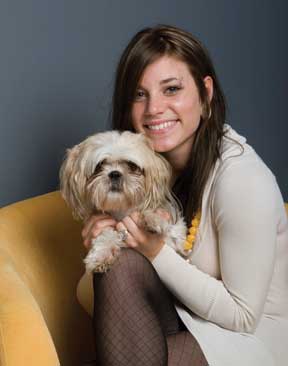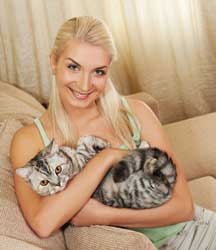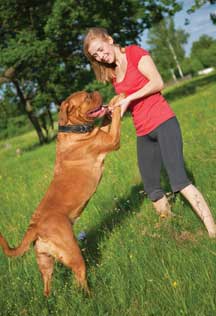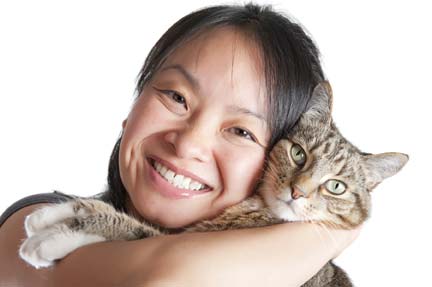 What's Up, Doc?
What's Up, Doc?
Tails are wagging at NCSU vet school
When Hollywood produces the next movie in the Dr. Dolittle series about a doc who can speak to animals, the main character should be a woman. Here’s why: There are 259 women enrolled in N.C. State University’s elite College of Veterinary Medicine compared to only 59 men.
U.S. News & World Report ranks the vet school fifth in the country, and its gender split of 84 percent vs. 16 percent is a national trend.
Dr. Dianne Dunning, DVM, MS, DACVS, has been a clinical associate professor in the Department of Clinical Sciences in the NCSU vet school since 2005. She’s an authority on animal welfare, the human-animal bond, and the connection between animal and community well-being.
Here's what Dunning has to say about the link between those with two legs and those with four.

Q: How and why has our relationship with animals — domesticated and wild — changed?
A: Our relationship with animals has evolved over thousands of years, beginning with the earliest domestication of dogs and sheep in Asia.
In modern times, I believe that our concepts about animals and the roles they play in our lives have changed dramatically for a number of reasons.
These include socioeconomic influences, technological advances and greater access to specialized veterinary care. Additionally, we demand a safe and efficient food supply today that’s as convenient as the neighborhood grocery store.
We’ve grown closer to some types of animals and more distant from others. Pets are now part of the family, no longer relegated to the barn or the backyard. In the opposite direction, most of us no longer experience or understand the life cycle of food animals from farm to table.
And as development encroaches on animal habitats, we have fewer opportunities to encounter animals truly in the wild or, conversely, we see displaced wildlife as a nuisance.
 Q: What does this say about our society?
Q: What does this say about our society?
A: I think it shows how complicated and dichotomous our society has become.
In some instances, animals are on near equal standing with humans, receiving the same care and concern that we would provide to a small child. In other situations, it’s socially acceptable to eat meat or conduct animal research.
I believe most of us are ambivalent in our beliefs — able to hold conflicting views regarding our relationships with animals.
Q: What is the human-animal bond? Why is it of interest?
A: The human-animal bond is usually used to denote the more positive aspects of our relationships with animals, focusing on the symbiotic and mutually advantageous features of the connection.
However, the human-animal bond can also produce negative or neutral consequences for either party.
The American Veterinary Medical Association (the nonprofit group that represents more than 80,000 veterinarians in this country) defines the human-animal bond as: “A mutually beneficial and dynamic relationship between people and other animals that is influenced by behaviors that are essential to the health and well-being of both.”
I think it’s important to consider the totality of our connections to animals at all levels — whether as pets, wildlife or food animals — and to understand how change to any part of the equation can significantly alter the outcomes experienced by humans, other animals and the environment as a whole.
 Q: Whose ethics are involved in determining ethical treatment for animals? Has what’s considered ethical changed over time?
Q: Whose ethics are involved in determining ethical treatment for animals? Has what’s considered ethical changed over time?
A: Veterinarians, pet
owners, animal ethicists, animal rights activists, hunters, farmers — they all play a role in determining ethical treatment of
animals.
Some push for immediate and sweeping changes. Others are reluctant to alter the status quo or fear that moving too fast may result in unintended consequences.
Without going into a lengthy philosophical discussion, yes, in some sense, ethics do change over time.
With new discoveries and medical advances, the acceptable veterinary standards of care have changed — for instance, in regard to the management of pain.
Ethics and what is socially tolerated also vary from society to society — the slaughter of horses for human consumption is anathema in the United States, yet horse meat is a delicacy in France and Japan.